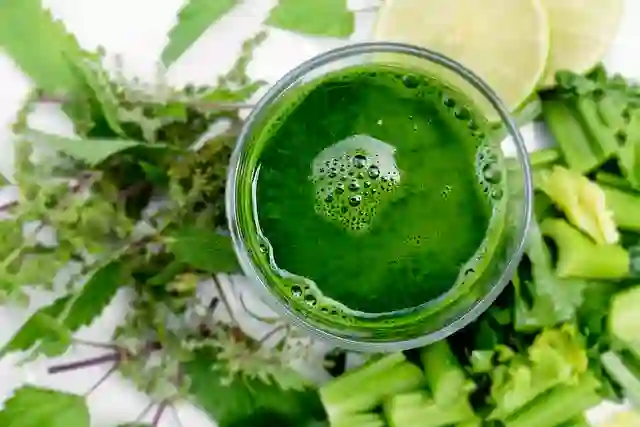Detox Diet for your health
Detox diets have become increasingly popular in recent years as a way to rid the body of toxins and improve overall health and wellness. However, there is much debate surrounding the effectiveness and safety of these diets. In this article, we will explore the benefits and potential risks of a detox diet, and provide tips for safely and effectively cleansing your body of toxins.
What is a Detox Diet?
It is a short-term dietary plan that aims to eliminate toxins from the body. These diets typically involve consuming specific foods or beverages and avoiding others in order to support the body’s natural detoxification process. Some detox diets may also include supplements, herbal teas, or other products intended to support the body’s detoxification.
Benefits of a Detox Diet
There are several potential benefits of a detox diet, including:
- Improved digestion
- Increased energy levels
- Better sleep
- Clearer skin
- Weight loss
- Reduced inflammation
However, it’s important to note that there is limited scientific evidence to support these claims.
Potential Risks of a Detox Diet
While it can be safe for most people, there are some potential risks to be aware of. These include:
- Nutrient deficiencies
- Dehydration
- Electrolyte imbalances
- Low blood sugar
- Headaches
- Dizziness
- Constipation
- Fatigue
- Decreased immune function
- Increased risk of disordered eating patterns
It’s important to speak with your healthcare provider before starting it, especially if you have any underlying medical conditions or are taking medications.
How to Safely and Effectively Detox
If you’re interested in trying it, here are some tips to help you do so safely and effectively:
- Choose a detox plan that is appropriate for your individual needs and health goals.
- Eliminate processed foods and focus on whole, nutrient-dense foods such as fruits, vegetables, and lean proteins.
- Avoid caffeine, alcohol, and other stimulants that can interfere with the detoxification process.
- Stay hydrated by drinking plenty of water, herbal teas, and other hydrating fluids.
- Engage in light exercise, such as yoga or walking, to support your body’s natural detoxification process.
- Listen to your body and make adjustments to your diet and exercise routine as needed.
Frequently Asked Questions
1. Can I eat meat on a detox diet?
It’s best to avoid meat and poultry during a detox diet, as they can be difficult to digest and can slow down the detoxification process.
2. Will I lose weight on a detox diet?
It’s possible to lose weight on a detox diet, but this should not be the primary goal. Instead, focus on improving your overall health and wellbeing.
3. Can I drink coffee on a detox diet?
It’s best to avoid caffeine, including coffee, during a detox diet. Instead, try herbal teas or decaf options.
4. How often can I do a detox diet?
It’s generally safe to do a detox diet once or twice a year, but this may vary depending on your individual health needs and goals.
5. Are there any long-term risks associated with a detox diet?
There is limited research on the long-term effects of detox diets, so it’s important to speak with your healthcare provider before starting one to ensure it’s safe for you.
6. Can I exercise while on a detox diet?
Yes, light exercise can be beneficial during a detox diet. However, it’s important to listen to your body and avoid strenuous exercise that could deplete your energy levels.
7. Can I snack during a detox diet?
Yes, snacking is allowed during a detox diet. However, it’s important to choose healthy snacks such as fresh fruits, vegetables, and nuts.
8. How do I know if a detox diet is right for me?
It’s important to speak with your healthcare provider before starting a detox diet, especially if you have any underlying medical conditions or are taking medications. Your healthcare provider can help you determine if a detox diet is safe and appropriate for you.
9. How do I avoid feeling hungry during a detox diet?
To avoid feeling hungry during a detox diet, make sure you’re consuming enough calories and choose high-fiber foods that can help you feel full and satisfied.
10. How long should I do a detox diet for?
The length of your detox diet will depend on your individual health needs and goals. Shorter detox diets, such as 3-day or 7-day plans, may be appropriate for some people, while others may benefit from longer detox periods up to 14 days. It’s important to listen to your body and make adjustments to your diet as needed.
11. Can I eat grains on a detox diet?
Yes, whole grains can be included in a detox diet as long as they are unprocessed and high in fiber. Examples include brown rice, quinoa, and oats.
12. Will I feel tired during a detox diet?
It’s possible to feel tired or fatigued during a detox diet, especially if you’re eliminating caffeine or other stimulants from your diet. However, this should only be temporary and your energy levels should improve as your body adjusts to the cleanse.
13. Can I drink alcohol on a detox diet?
No, alcohol should be avoided during a detox diet as it can hinder the detoxification process and cause dehydration.
14. How do I break a detox diet?
It’s important to gradually reintroduce foods back into your diet after a detox to avoid overwhelming your digestive system. Start by consuming small amounts of easily digestible foods, such as soups or smoothies, and gradually add in more solid foods over the course of a few days.
15. Are there any risks associated with a detox diet?
While it can be safe for most people, there are some potential risks to be aware of, including nutrient deficiencies, dehydration, and electrolyte imbalances. It’s important to listen to your body and make adjustments to your diet as needed, and to speak with your healthcare provider before starting a detox diet if you have any concerns.
It can be a great way to support your body’s natural detoxification process and improve your overall health and wellbeing. By eliminating processed foods and incorporating whole, nutrient-dense foods into your diet, you can help rid your body of toxins and feel more energized. However, it’s important to approach a detox diet with caution and speak with your healthcare provider before starting one if you have any concerns.
By following the tips and guidelines provided in this article, you can embark on a safe and successful detox diet that will leave you feeling rejuvenated and refreshed.
References
Atli Arnarson, PhD – Healthline
National Institutes of Health – NIH
Mayo Foundation for Medical Education and Research – Mayo Clinic
Megan Ware, RDN, LD – Medical News Today
Harvard Medical School – Harvard Health Publishing







